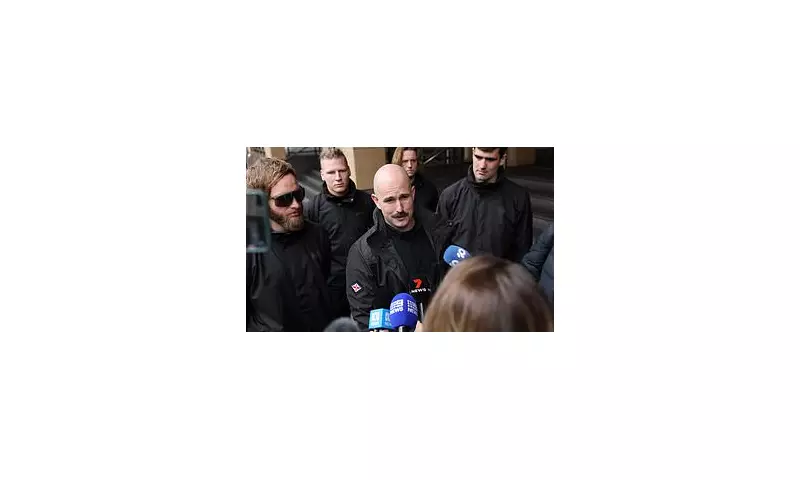
In a significant blow to Britain's far-right extremist movement, Thomas Sewell, the notorious leader of the neo-Nazi group National Socialist Network (NSN), has been handed a two-year prison sentence. The conviction at Winchester Crown Court marks a pivotal moment in the fight against organised hate groups in the UK.
Sewell, a 29-year-old from southeast London, was found guilty of assaulting a security guard outside a hotel in Southampton. The altercation, which was captured on shocking CCTV footage, revealed the unprovoked and violent nature of the attack, leading to his immediate arrest and subsequent conviction.
The Rise and Fall of a Hate Figure
Thomas Sewell had become one of the most recognisable and feared faces of British neo-Nazism. As the head of the NSN, he orchestrated intimidating rallies and disseminated virulent racist propaganda across social media platforms. His notoriety was further amplified by a controversial appearance on a BBC documentary, where he openly espoused his extremist views.
Despite his attempts to present a polished public image, Sewell's violent tendencies repeatedly surfaced. The court heard how his public persona was a carefully constructed facade masking a deeply aggressive individual, willing to use violence to further his cause.
A Pattern of Aggression
The incident that ultimately led to his imprisonment occurred outside the Hilton Hotel in Southampton. Sewell, accompanied by associates, became involved in a confrontation with a security guard. Prosecutors detailed how Sewell delivered a powerful punch to the victim's head, an attack described in court as both brutal and completely unprovoked.
This was not Sewell's first encounter with the law. He had previously been convicted for assaulting a police officer, demonstrating a consistent pattern of violent behaviour that contradicted his attempts to mainstream his extremist ideology.
Courtroom Consequences and Sentencing
During the sentencing, Judge Nicholas Rowland delivered a stern rebuke, emphasising that Sewell's actions were those of a "bully" who relied on violence. The judge noted the severity of the attack and the need to protect the public from such calculated aggression.
In addition to the prison term, Sewell was made subject to a five-year restraining order against the victim and given a ten-year criminal behaviour order. These measures are designed to severely restrict his activities and associations upon release, limiting his ability to reorganise with far-right elements.
The Wider Impact on Extremist Networks
Sewell's sentencing represents more than just the downfall of one individual; it deals a substantial blow to the operational capabilities of the National Socialist Network. With its leader behind bars, the group's capacity to organise public demonstrations and spread hate propaganda is significantly diminished.
This case highlights the ongoing efforts by UK authorities to combat far-right extremism through both policing and the judicial system. It sends a clear message that organised hate groups and their leaders will face serious consequences for their actions.





